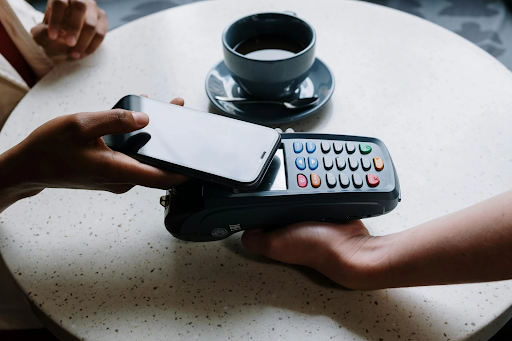
For Apple executives, getting into finance is a smart way to make money in new areas and not rely just on selling iPhones and computers anymore, especially since those markets are getting crowded. But more importantly, it fits perfectly with what Apple has always done: making things super easy and convenient for users.
Who doesn’t enjoy the convenience: Instead of having a bunch of different apps for wallets and banks, you could just use Apple for everything. Millions of people already trust Apple with their credit cards and money on their phones, so it makes sense.
Even though some people were confused at first about Apple getting into finance, the reasons actually make a lot of sense. It's a strategic move to make Apple the number one brand for everything in your life, not just devices, but also your money. Let's see how this plan is already working, and which are the main issues the company tries to address with becoming a challenging player in the financial market!
Everything Started From the Wallet
Long before terms like "mobile wallets" and "tap-to-pay" became everyday words, Apple boldly launched its revolutionary Wallet app, opening the door to a future of digital payments. This simple app for storing digital tickets, passes, coupons, and credit cards seemed unimportant when it was first released with iOS 6 and the iPhone 5 back in 2012.
But just a few years later, this small app became an essential part of millions of people's daily lives. If you have an iPhone, you probably already know where is Apple Wallet and when it may come in handy. It allows storing from concert tickets to airplane boarding passes, gym memberships, and more, everything you used to carry in your physical wallet years ago.
However, Apple pushed this idea of digitization further when it launched Apple Pay in 2014. This secure mobile payment system made the idea of paying for things by tapping your phone feel effortless and amazing, instead of just a strange new option.
Mobile wallets weren't a completely new idea invented by Apple, but Apple definitely played a key role in making them popular and getting people to use them everywhere. The easy-to-use design, strong focus on data security, and the confident way they launched it all convinced people that this was the smooth and convenient way to pay in the future.
The Iconic Apple Card
True to Apple's style, this sleek titanium card showcased its commitment to beautiful design and high-end branding.
A major selling point from the start - no annual fees, hidden charges , or the kind of sneaky tricks that traditional banks may use. Just clear and simple credit with no surprises. For people tired of credit card companies, it felt like a welcome change.
But the real advantage that makes Apple Card stand out? The way it works seamlessly with other Apple services like Wallet and Messenger, makes it easy to share payments with friends and family. This made it incredibly convenient for people who are fully invested in the "Apple ecosystem" to share credit lines or split costs for big purchases right away.
Of course, since Apple was new to the credit card business, there were some concerns about trust and security, so the initial launch was limited to the US only. But it's clear that they plan to expand soon. The card's smooth user experience and attractive features are too good to keep in just one market.
People Trust Apple, and It's Important in the Finance World
While new banking apps and fintech companies get a lot of attention, none have the strong brand reputation and user trust that Apple has built over decades with its phones, computers, and software.
This is a huge advantage when entering the competitive financial services market. No matter how fancy a bank app looks or how attractive its interest rates seem, most people hesitate to trust a new company with their money, especially if it's a startup that could quickly go out of business, but this was not the case for Apple thanks to its positive reputation among customers .
Of course, traditional banks still dominate the financial market but many believe an Apple-led financial system would be a major shift from the current model, where big banks are often seen as greedy and focused solely on profits. Apple could offer a new approach to managing money that prioritizes customers and operates with honesty and ethics.
Some might doubt Apple's ability to transition from phone-making to controlling the entire global financial system. However, Apple's reputation for creating products that "just work" is incredibly valuable. People already rely on Apple for their phones, computers, and other everyday services. So, trusting them with their money might feel like a natural extension of that existing trust.



